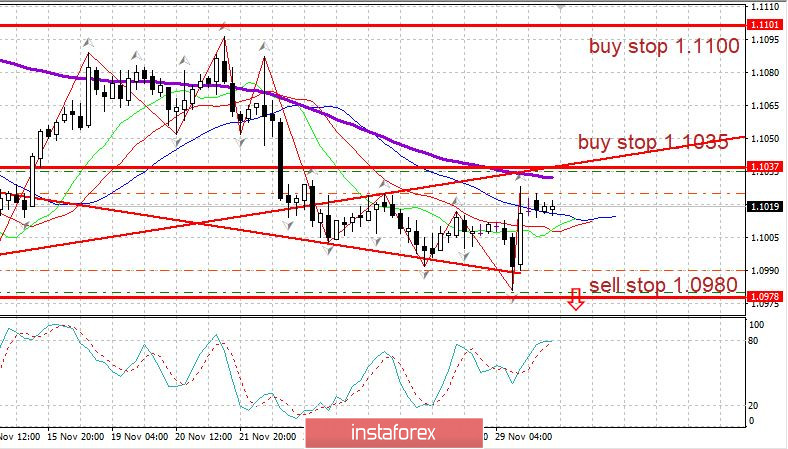
As the EURUSD continues to consolidate in a narrow range, it is increasingly thought that there will be no clarity with the direction for the euro until the most important events next week, December 11 and 12, respectively.
British parliamentary elections will be held that day, and of course, this will bring some clarity to the situation with the Brexit. But two other events directly concern the largest Central Banks: on December 11 - the Fed and on December 12 - the ECB.
Both Central Banks are at a crossroads whether they will continue to soften monetary policy or stop?
Situations on both parties are different. The Fed has a better situation where the economy is growing steadily, albeit with a slowdown. The Fed has long raised rates above the zero mark and discontinued QE programs, moreover, the Fed pulled some of the injections out of the market.
The situation is more complicated for the ECB as the growth is very unstable, the German economy is intermittent. In addition to this, the ECB rate is zero, and minus 0.4% on deposits for banks.
Furthermore, the ECB has a new positioned head, Christine Lagarde, where judging by the first statements, Lagarde is ready to continue Mario Draghi's aggressively soft policy.
At the same time, the ECB, generally speaking, is not responsible for the growth of the economy, it was a voluntarily undertaken mission.
The Fed has an obligation to promote maximum employment, written directly into the mandate along with the obligation to minimize inflation. This is the so-called dual mandate of the Fed. Which leaves us to the question, how do we achieve this without economic growth?
In reality, Fed officials act as a rule, in a simple way, in a situation of rapid growth and they are gradually raising their interest rates also protecting the economy from overheating. In a situation of economic decline, they quickly cut rates for revitalization. A short story of the last decade about the large-scale injections of liquidity, the QE programs is the equivalent of a negative interest rate. Liquidity infusion occurs through the purchase of securities by the Central Bank, primarily government bonds, from the market to the Central Bank balance sheet. In fact, this issue is secured by bonds.
The situation is much more complicated for the ECB due to the fact that the ECB's policy has been relaxed as much as possible right now. And what the ECB will do in a situation of a new crisis is not yet clear. How can the economy be helped if all the funds are already involved?
Thus, the decisions of the Fed and the ECB will determine the course of the main Central Bank for the coming months.
EURUSD
Ready to buy from 1.1035.
Ready to sell from 1.0980.





















